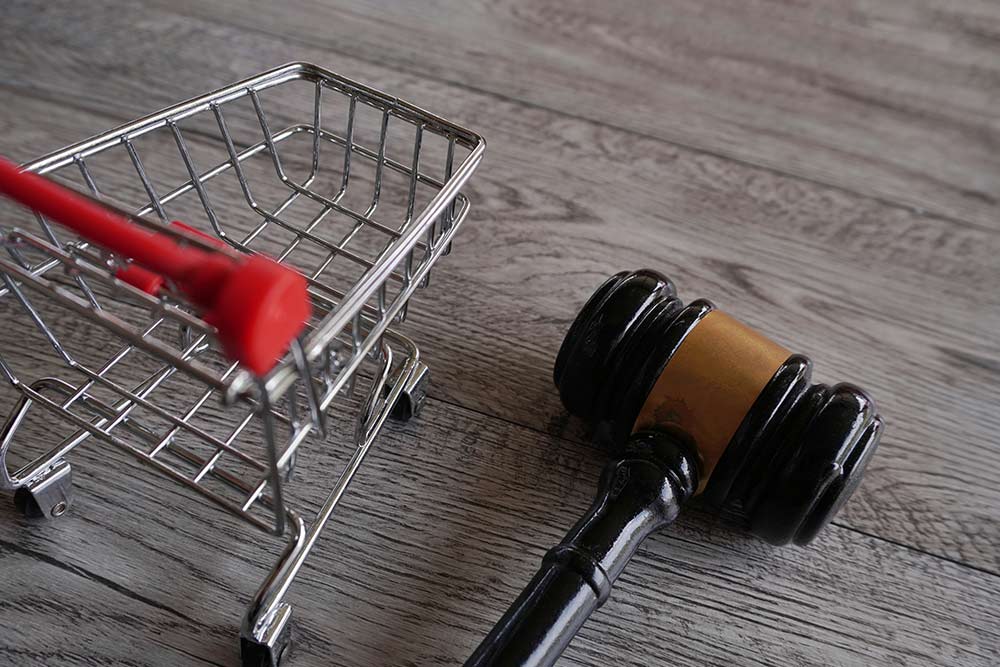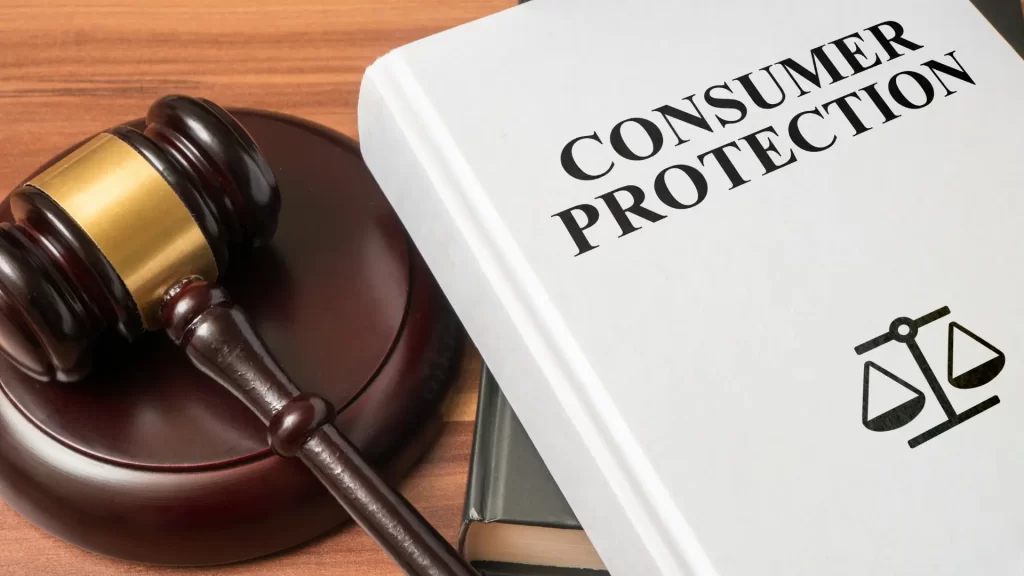Consumer Protection in the UAE: Understanding the Latest Amendments and Your Rights
The United Arab Emirates (UAE) has cultivated a robust consumer protection framework that safeguards the rights and interests of consumers in all commercial dealings. A recent amendment—Federal Decree-Law No. 5 of 2023—has further strengthened this framework by updating Federal Law No. 15 of 2020 on Consumer Protection. These amendments introduce stricter measures, clarify supplier obligations, and bolster enforcement mechanisms to ensure a fair and transparent marketplace.
In this comprehensive guide, we will explore the scope and application of the UAE Consumer Protection Law, outline the rights granted to consumers, detail supplier obligations, highlight penalties for non-compliance, and explain the enforcement procedures, including the role of various authorities. We will also address frequently asked questions on the subject.

Scope of the UAE Consumer Protection Law
The UAE Consumer Protection Law applies broadly to all goods and services offered within the country’s jurisdiction, ensuring that both traditional retail transactions and modern digital commerce are regulated. Specifically:
- Domestic Goods and Services: Any product or service sold within the UAE—across the mainland and free zones in Dubai, Sharjah, Abu Dhabi, and other emirates—is covered.
- E-Commerce Transactions: The law applies to goods sold online through e-commerce platforms and websites licensed and registered in the UAE, ensuring consumers receive the same level of protection as with brick-and-mortar stores.
- Advertising and Commercial Agents: Suppliers, advertisers, and commercial agents must adhere to the standards set by the law, maintaining transparency and honesty in their dealings and promotional content.
It is important to note that the law generally does not extend to online transactions made by UAE consumers through platforms or businesses registered outside the UAE. This limitation recognizes the challenges of international jurisdiction. For consumers and businesses operating locally, however, the regulations are comprehensive and leave little room for malpractice.
Key Consumer Rights Under the Law
The UAE Consumer Protection Law guarantees a set of core rights aimed at ensuring consumer welfare, safety, and satisfaction. These include:

Right to a Safe Environment:
Consumers are entitled to a secure environment when purchasing goods or receiving services. Suppliers must prioritize health, safety, and well-being, ensuring that products and premises meet approved standards.Right to Correct Information:
Accurate, reliable, and clear information about a product’s ingredients, specifications, usage instructions, and risks must be provided. Consumers depend on this information to make informed decisions.Right to Be Informed of Rights and Obligations:
Before finalizing a transaction, consumers should be made aware of their rights, the supplier’s obligations, return policies, warranty terms, and any relevant legal protections or limitations.Right to Choose:
Consumers have the freedom to compare products and services, selecting the one that best meets their needs, free from undue pressure or deceptive tactics.Right to Fair Compensation:
If a consumer suffers harm or incurs losses due to defective goods, poor-quality services, or misleading information, they are entitled to fair compensation. This ensures accountability and encourages compliance among suppliers.Right to Privacy and Data Protection:
Suppliers must safeguard consumers’ personal data and respect their privacy. Any use of consumer information for marketing or other non-essential purposes requires explicit prior consent.
Supplier Obligations Under the Law
Suppliers, whether engaged in manufacturing, retail, services, or e-commerce, must uphold a series of obligations designed to maintain market integrity and consumer trust:

Transparency:
Suppliers must provide a dated invoice detailing the trade name, contact information, product or service type, and pricing. This clarity allows consumers to verify authenticity, track purchases, and seek recourse if needed.Respect for Religious and Cultural Values:
In a diverse and multicultural society like the UAE, suppliers must respect religious values, traditions, and customs, ensuring their products, services, and marketing materials are culturally appropriate.Prompt Dispute Resolution:
Suppliers must maintain efficient complaint-handling procedures. Consumers should have access to clear channels for raising grievances, and suppliers are obligated to address and resolve these disputes fairly and promptly.Warranty Compliance:
Suppliers must honor warranty terms and conditions, offering timely maintenance, repair, or replacement of defective products. If the product cannot be repaired or replaced, a refund should be provided in accordance with the agreed-upon terms.Prohibition of Misleading Advertising:
Advertisements must accurately represent products and services. Any false or exaggerated claims regarding quality, pricing, or features can lead to severe penalties, ensuring that consumers are not misled.Fair Pricing Practices:
Prices should be clearly marked, accurate, and reflective of the product’s true value. In extraordinary circumstances—such as crises or significant market imbalances—the Minister of Economy may impose fixed prices on essential commodities to prevent price gouging.Product Safety Compliance:
Suppliers must ensure their products meet relevant UAE standards and do not pose risks to health or safety. This measure serves as a proactive safeguard against potential harm.
Penalties for Non-Compliance
The UAE Consumer Protection Law enforces stringent penalties to deter unfair trade practices and protect consumer interests. Violations may include:
- Providing misleading or incomplete product information.
- Failing to honor warranties or after-sales support obligations.
- Engaging in commercial fraud, such as selling counterfeit goods.
Should a supplier be found guilty of non-compliance, penalties can range from substantial fines to license revocations. Contracts that include terms harmful to consumers or that exempt suppliers from their legal responsibilities are considered null and void. In severe cases, offenders may face imprisonment and other legal consequences.

E-Commerce Requirements
With a rapidly expanding online marketplace, the UAE has introduced specific consumer protection obligations for e-commerce businesses. Operators of online platforms must:
- Clearly identify their licensing authority and registration details.
- Provide comprehensive product or service descriptions, including specifications and pricing.
- Disclose contract terms, payment methods, and warranty information.
- Offer secure payment gateways and protect consumers’ personal and financial data.
By adhering to these requirements, e-commerce businesses foster consumer confidence, leading to sustainable growth in the digital economy.
Prohibited Practices
The UAE Consumer Protection Law categorically prohibits any practices that undermine consumer trust or cause harm. This includes:
- Concealing product defects or misleading customers about a product’s origin, quality, or safety.
- Advertising false or deceptive prices and promotions.
- Refusing to repair or replace defective products at no charge when legally required to do so.
- Including contract clauses that unlawfully limit a consumer’s rights or excuse the supplier from liability.
Any entity found engaging in such prohibited practices is subject to enforcement actions, including financial penalties, the suspension or revocation of operating licenses, and potential legal proceedings.

Enforcement and Consumer Protection Authorities
The Ministry of Economy oversees the enforcement of consumer protection laws in the UAE. Each emirate in the UAE has a Department of Economic Development (DED) that plays a vital role in enforcing consumer protection laws locally. So, when you obtain a trade licence in Dubai, you are obliged to follow all the laws and regulations.
The DEDs in Abu Dhabi, Dubai, Sharjah, and other Emirates work with the Ministry of Economy to protect consumer rights. They are responsible for:
- Implementing and overseeing the Consumer Protection Business Law: Ensuring local businesses adhere to the regulations and that consumer rights are upheld.
- Addressing consumer complaints: Providing a local point of contact for consumers to resolve disputes with suppliers efficiently and fairly.
- Taking action against violations: Enforcing penalties against businesses that violate consumer protection laws, maintaining a fair and transparent marketplace.

Emirates Society for Consumer Protection
The Emirates Society for Consumer Protection is a non-profit organisation affiliated with the Ministry of Community Development. It plays a crucial role in protecting consumer rights by:
- Receiving and verifying consumer complaints.
- Liaising with relevant entities to address consumer issues.
- Protecting against commercial malpractice.
- Raising awareness and promoting responsible consumption.

1. What is the main purpose of the Consumer Protection Law in the UAE?
The Consumer Protection Law in the UAE aims to safeguard consumers against fraudulent, deceptive, or unfair trade practices. It ensures that consumers have access to accurate information, quality goods and services, fair pricing, and a secure marketplace. The ultimate goal is to maintain consumer trust, promote transparency, and uphold a balanced economic environment in which both businesses and consumers can thrive.
2. Which government entities enforce consumer protection laws in the UAE?
Primary enforcement responsibilities lie with the UAE Ministry of Economy, which oversees nationwide policies and regulations. On a local level, Departments of Economic Development (DEDs) in each emirate enforce compliance. Additionally, non-governmental organizations like the Emirates Society for Consumer Protection work closely with these authorities to address complaints, raise awareness, and facilitate dispute resolution.
3. Does the Consumer Protection Law cover both goods and services?
Yes. The UAE Consumer Protection Law applies broadly to all goods and services available in the local market. Whether it’s a tangible product—like electronics or clothing—or a service—such as home maintenance, repairs, or professional consultancy—suppliers must comply with legal standards of quality, safety, transparency, and fairness.
4. Are online purchases protected under UAE consumer laws?
If the online platform is registered and licensed in the UAE, the same consumer protection rules apply as they do for brick-and-mortar stores. E-commerce platforms must provide accurate product information, fair pricing, transparent shipping and return policies, and secure payment methods. However, transactions with foreign-based or unregistered online retailers may not fall under local laws, limiting the consumer’s legal recourse.
5. What are the key rights provided to consumers under the law?
Consumers in the UAE enjoy several core rights, including:
- Right to Safety: Protection from hazardous or substandard products.
- Right to Information: Access to accurate details about product origin, quality, pricing, and warranty terms.
- Right to Choice: Freedom to select from a variety of goods and services without undue pressure.
- Right to Fair Compensation: Entitlement to refunds, replacements, or repairs for defective or mislabeled products.
- Right to Privacy: Assurance that personal and financial data are securely handled.
6. How does the Consumer Protection Law ensure price transparency?
Suppliers must clearly display product prices and ensure that they are accurate and consistent. In cases of extraordinary circumstances—such as economic crises—the Minister of Economy can set price ceilings for essential goods to prevent price gouging. Such measures maintain fair pricing and prevent consumers from being overcharged.
7. What obligations do suppliers have regarding warranties and returns?
Suppliers are legally bound to honor warranty terms. They must offer maintenance, repairs, or replacements for defective products at no extra cost during the warranty period. If a product cannot be repaired or replaced, a supplier may need to issue a full refund. Transparent return and warranty policies help maintain consumer trust.
8. Is misleading advertising punishable under UAE consumer laws?
Yes. Suppliers and advertisers must present truthful, factual information about their products and services. Any form of misleading advertising—such as false claims about product quality, incorrect pricing, or deceptive promotional offers—can result in penalties, fines, and legal action. This ensures consumers are not tricked into making uninformed purchases.
9. What happens if a supplier violates the Consumer Protection Law?
Violations can result in a range of penalties, including substantial fines, revocation of trade licenses, and even imprisonment in severe cases. Contracts containing terms that harm consumers or attempt to limit the supplier’s legal obligations are automatically void. These penalties serve as strong deterrents against unfair trade practices.
10. How can consumers file a complaint if they encounter a violation?
Consumers can lodge complaints with their local Department of Economic Development or directly with the Ministry of Economy. Many authorities offer online portals, hotlines, and walk-in centers for submitting grievances. The Emirates Society for Consumer Protection also accepts complaints, verifies their legitimacy, and coordinates with relevant entities for resolution.
11. Does the law protect consumers’ personal data and privacy?
Yes. Suppliers must respect consumers’ privacy and data security. They cannot use personal information for marketing or other non-consensual purposes without explicit permission. Data protection regulations require secure handling of financial details, contact information, and transaction records.
12. Is there a time limit for consumer complaints?
While the law does not specify a universal deadline for filing complaints, it is generally advisable to report issues as soon as possible. Prompt reporting increases the likelihood of a fair resolution. Some warranties or return policies may include timeframes (e.g., reporting defects within a certain number of days), so consumers should check the terms and conditions provided at the time of purchase.
13. How can businesses ensure compliance with consumer protection laws?
Businesses can ensure compliance by:
- Providing accurate and detailed product information.
- Honoring warranties and promptly resolving disputes.
- Adhering to fair pricing and transparent billing practices.
- Training staff on consumer rights, complaint handling, and ethical advertising.
- Ensuring products meet UAE safety and quality standards.
14. What are common prohibited practices under the law?
Prohibited practices include:
- Deceptive pricing or hidden fees.
- Refusal to honor warranty claims or offer agreed-upon after-sales support.
- Mislabeling products or withholding safety information.
- Including contract clauses that limit consumer rights or absolve the supplier of liability.
Such practices are subject to legal penalties.
15. Can consumers get compensation for emotional distress or inconvenience?
While the law primarily focuses on tangible losses or damages resulting from defective goods, poor services, or misleading practices, compensation often targets financial or material harm. However, mediation and negotiation between the consumer and supplier may, in some cases, address non-financial losses on a discretionary basis.
16. Do consumer protection laws apply equally in all emirates?
Yes. The federal Consumer Protection Law and associated regulations apply uniformly across all emirates. Local enforcement agencies (DEDs) and the Ministry of Economy ensure consistent application. Although free zones may have their own administrative frameworks, overall consumer rights remain largely consistent throughout the UAE.
17. Are second-hand or refurbished goods also covered by consumer protection laws?
Generally, second-hand and refurbished products must still be accurately described, fairly priced, and fit for their stated purpose. Suppliers should inform consumers if items are used or refurbished and provide truthful information about the product’s condition. Any warranties or return policies must be honored as stated, fostering trust in the resale market.
18. How does the UAE handle the recall of unsafe products?
If a product is deemed unsafe, authorities can order a recall. Suppliers must promptly remove it from the market and notify consumers who have already purchased it. They may need to offer repairs, replacements, or refunds. Failure to comply with recall orders can lead to severe penalties, ensuring consumer safety remains a priority.
19. What consumer protection measures apply during crises or emergencies?
In situations like economic disruptions, health emergencies, or natural disasters, authorities may implement additional measures. These can include price controls on essential goods, stricter enforcement against hoarding, and accelerated complaint resolution procedures. Such measures help maintain market stability and protect consumers from exploitation.
20. Is there a public awareness program about consumer rights?
Yes. The Emirates Society for Consumer Protection and other entities regularly conduct workshops, seminars, and awareness campaigns. These programs educate consumers about their rights, how to recognize unfair practices, and where to file complaints. Enhanced public awareness ensures more proactive consumer involvement in preserving market integrity.
21. Can a consumer take legal action directly against a supplier?
Consumers may pursue legal action through the UAE’s court system if disputes cannot be resolved amicably or through mediation. Civil proceedings may be initiated to claim compensation for financial losses, ensuring consumers have a legal recourse beyond administrative complaints.
22. Do consumer protection laws address environmental and ethical considerations?
While the primary focus is on consumer safety, fairness, and transparency, suppliers are encouraged to follow ethical standards and environmentally responsible practices. Certain regulations, certifications, and labeling requirements exist for eco-friendly products. Ethical and sustainable business practices, while not always legally mandated, are increasingly encouraged and may influence consumer choices.
23. Can consumers refuse to pay for a product or service if their rights are violated?
If a product or service is not delivered as agreed—such as being defective, not meeting described specifications, or failing to include promised after-sales support—consumers may have legal grounds to withhold payment or demand a refund. Formal complaints can also be filed, and if the dispute escalates, the matter can be resolved through mediation, arbitration, or legal proceedings.
24. How often are consumer protection laws updated in the UAE?
UAE consumer protection legislation is periodically reviewed and updated to address emerging market trends, technological advancements, and consumer feedback. For example, recent updates strengthen protections for e-commerce transactions and data privacy. Ongoing refinement ensures that laws stay relevant and effective in a fast-evolving global economy.
25. Where can I find official information about consumer rights and regulations in the UAE?
Consumers can access official information from the Ministry of Economy’s website, local DED websites, and the Emirates Society for Consumer Protection. Government portals, FAQs, brochures, and hotline numbers provide reliable guidance. These resources ensure that consumers have ready access to accurate and authoritative information about their rights and how to exercise them.
Check out official site – https://u.ae/en/information-and-services/justice-safety-and-the-law/consumer-protection







